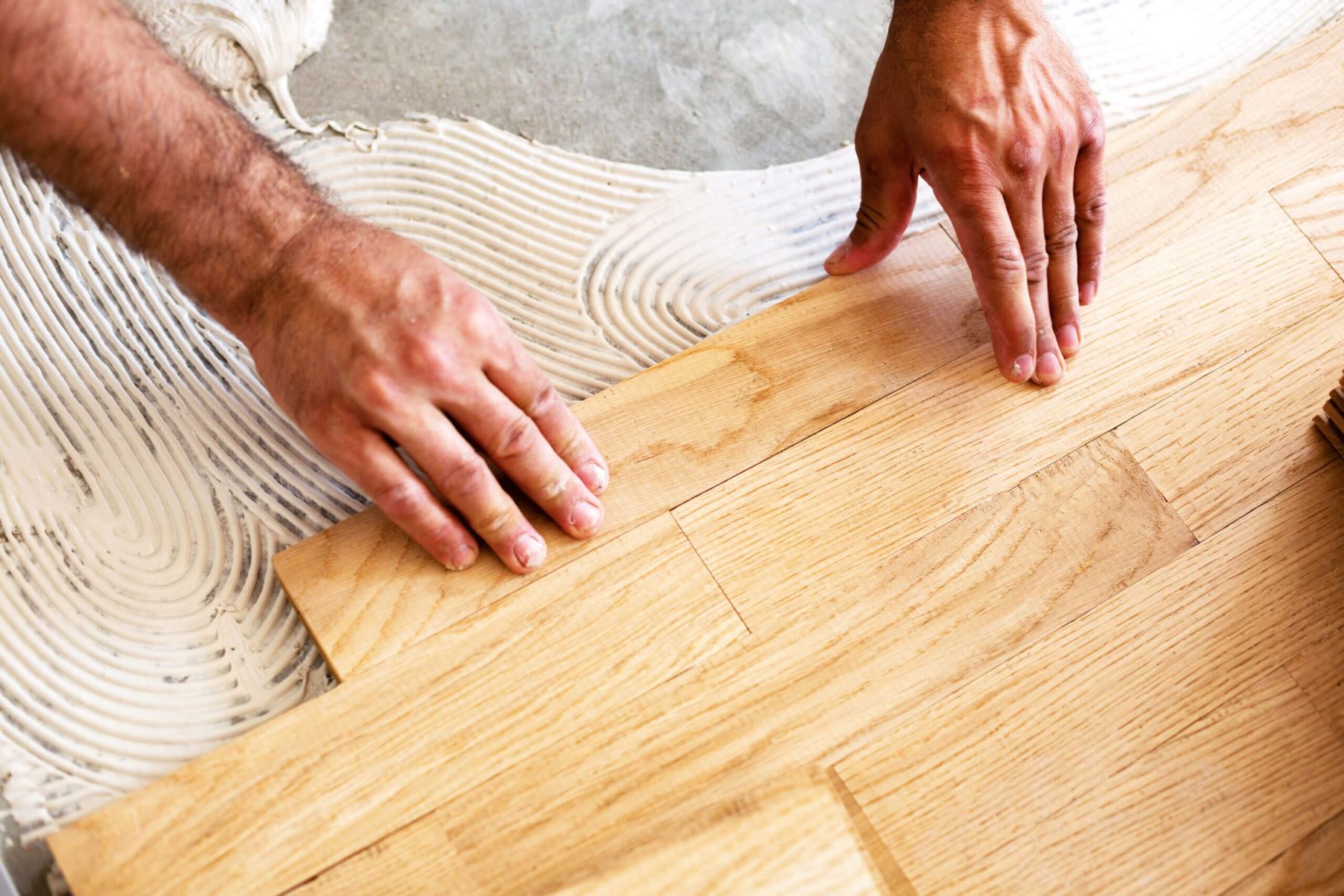
When it comes to choosing the right flooring for your home or office, there are a lot of factors to consider. From aesthetics and durability to maintenance and cost, flooring plays a crucial role in enhancing the overall look and feel of a space. Whether you’re planning a renovation or building a new property, it’s important to be well-informed about the different types of flooring available in the market.
In this article, we will explore 15 fascinating facts about flooring that will not only enlighten you but also help you make an informed decision. From the origins of various flooring materials to their unique characteristics and benefits, you’ll gain a deeper understanding of the world beneath your feet. So, let’s dive in and discover some interesting facts about flooring!
Key Takeaways:
- Flooring comes in many types, like hardwood, carpet, and vinyl, each with its own benefits. Whether you want durability, style, or eco-friendliness, there’s a flooring type for everyone’s needs and preferences.
- From cozy carpet to durable concrete and elegant natural stone, the world of flooring offers endless options to transform any space. Explore and find the perfect flooring that suits your style and lifestyle.
Hardwood flooring adds timeless beauty to any space.
Hardwood flooring is a classic choice that brings warmth, elegance, and natural charm to homes and commercial spaces alike. Its durability and versatility make it a popular flooring option for many.
Installing carpet can create a cozy and comfortable atmosphere.
Carpet provides a soft and cushioned surface underfoot, making it ideal for bedrooms, living rooms, and other areas where comfort is key. It also offers sound insulation and acts as a natural insulator.
Laminate flooring is a cost-effective alternative to hardwood.
Laminate flooring mimics the look of hardwood at a fraction of the cost. It is durable, easy to maintain, and available in a wide range of colors, patterns, and styles.
Vinyl flooring is moisture-resistant and perfect for high-traffic areas.
Vinyl flooring is highly durable and water-resistant, making it an excellent choice for kitchens, bathrooms, and other areas prone to spills and moisture. It is also easy to clean and comes in various designs.
Tile flooring offers endless design possibilities.
From ceramic and porcelain to natural stone, tile flooring provides limitless options to express your style. It is both durable and versatile, suitable for any room in your home or office.
Cork flooring is environmentally friendly and offers natural sound insulation.
Cork flooring is made from the bark of cork oak trees, making it a sustainable and renewable choice. Additionally, it insulates against noise and provides a comfortable walking surface.
Concrete flooring is incredibly durable and low maintenance.
Concrete flooring is known for its longevity, making it an ideal option for high-traffic areas. With its sleek and contemporary look, it has gained popularity in modern design.
Bamboo flooring is a sustainable alternative to hardwood.
Bamboo flooring is made from a fast-growing grass, making it an eco-friendly option. It offers a unique aesthetic and is highly durable, comparable to many hardwood species.
Engineered hardwood flooring combines the beauty of wood with enhanced stability.
Engineered hardwood consists of multiple layers of wood topped with a real hardwood veneer. It provides the look of hardwood while offering improved resistance to moisture and temperature changes.
Epoxy flooring is a durable and versatile choice for commercial and industrial spaces.
Epoxy flooring is a resin-based coating that creates a seamless, chemical-resistant surface. It is commonly used in garages, warehouses, and other industrial settings.
Natural stone flooring adds a touch of luxury and sophistication.
From marble and granite to travertine and slate, natural stone flooring exudes elegance. It is highly durable and unique, with each piece showcasing its own distinctive characteristics.
Linoleum flooring is hypoallergenic and environmentally friendly.
Linoleum is made from natural materials such as linseed oil, wood flour, and cork dust. It is anti-static, antimicrobial, and resistant to water damage, making it a healthy and sustainable choice.
Rubber flooring offers excellent shock absorption and is ideal for gym and sports areas.
Known for its resilience and durability, rubber flooring provides a cushioned surface and absorbs impact, reducing the risk of injury. It is commonly used in fitness centers, playgrounds, and athletic facilities.
Parquet flooring adds intricate patterns and elegance to any space.
Parquet flooring is made up of small wood pieces arranged in geometric patterns. It adds a touch of luxury and sophistication to rooms, making it a popular choice for upscale interiors.
Terrazzo flooring combines durability and artistic design.
Terrazzo is a composite material made from chips of marble, granite, glass, or other aggregates set in a cement binder. It provides a unique and customizable flooring option, known for its durability and versatility.
Conclusion
When it comes to flooring, there are plenty of interesting facts to consider. From the historical significance of certain materials to the benefits of different types of flooring, it’s clear that flooring plays an important role in our homes and workplaces. Whether you’re renovating your space or simply curious about the world of flooring, these 15 facts provide a glimpse into the fascinating world of flooring.
FAQs
1. What are the factors to consider when choosing flooring?
When choosing flooring, factors such as durability, maintenance, aesthetics, and cost should be considered. It’s important to choose a flooring material that aligns with your specific needs and preferences.
2. What is the most durable flooring option?
There are several highly durable flooring options, including tile, vinyl, and laminate. These materials are known for their resistance to wear and tear, making them suitable for high-traffic areas in both residential and commercial spaces.
3. How long does flooring installation take?
The duration of flooring installation depends on several factors, including the size of the area and the type of flooring being installed. On average, it can take anywhere from a few days to a couple of weeks for the installation process to be completed.
4. Can flooring be installed over existing flooring?
In some cases, flooring can be installed over existing flooring. However, it’s important to consult with a professional to determine if this is a viable option for your specific situation. Factors such as the condition of the existing flooring and the type of new flooring being installed will impact the feasibility of this approach.
5. Does flooring impact indoor air quality?
Yes, flooring can have an impact on indoor air quality. Certain types of flooring may emit volatile organic compounds (VOCs) that can affect air quality. It’s important to choose flooring materials that are low in VOCs and to maintain proper ventilation in order to promote a healthy indoor environment.
6. Can flooring be installed in bathrooms and kitchens?
Yes, there are flooring options available that are suitable for bathrooms and kitchens. Materials such as ceramic tile and vinyl are popular choices for these areas due to their water-resistant properties.
Flooring facts fascinate, but there's more to explore! Pelvic floor surprises await your discovery, while hardwood's history holds secrets you'll love uncovering. Curious about exercises that strengthen from the ground up? Read on for insights that'll leave you floored!
Was this page helpful?
Our commitment to delivering trustworthy and engaging content is at the heart of what we do. Each fact on our site is contributed by real users like you, bringing a wealth of diverse insights and information. To ensure the highest standards of accuracy and reliability, our dedicated editors meticulously review each submission. This process guarantees that the facts we share are not only fascinating but also credible. Trust in our commitment to quality and authenticity as you explore and learn with us.


